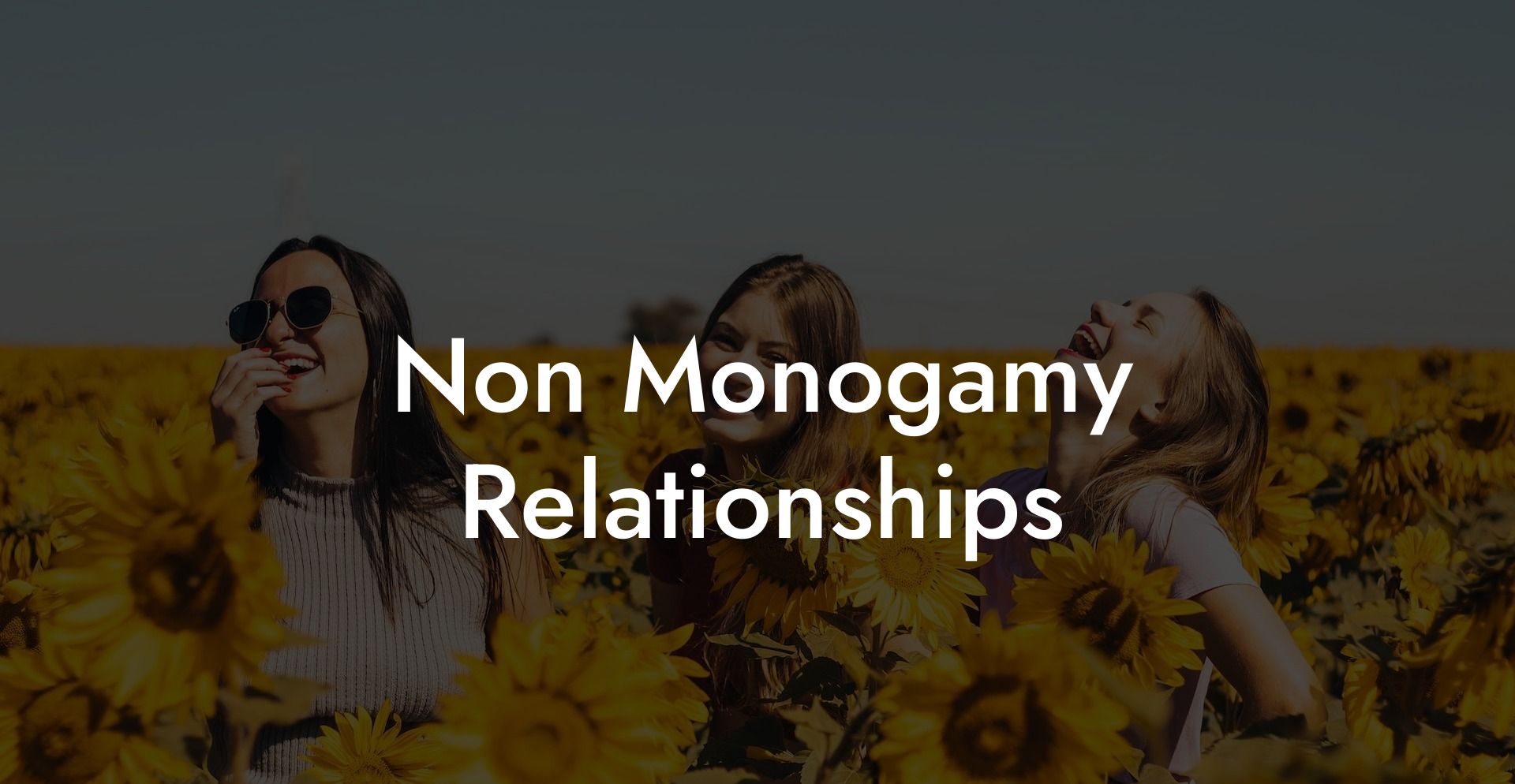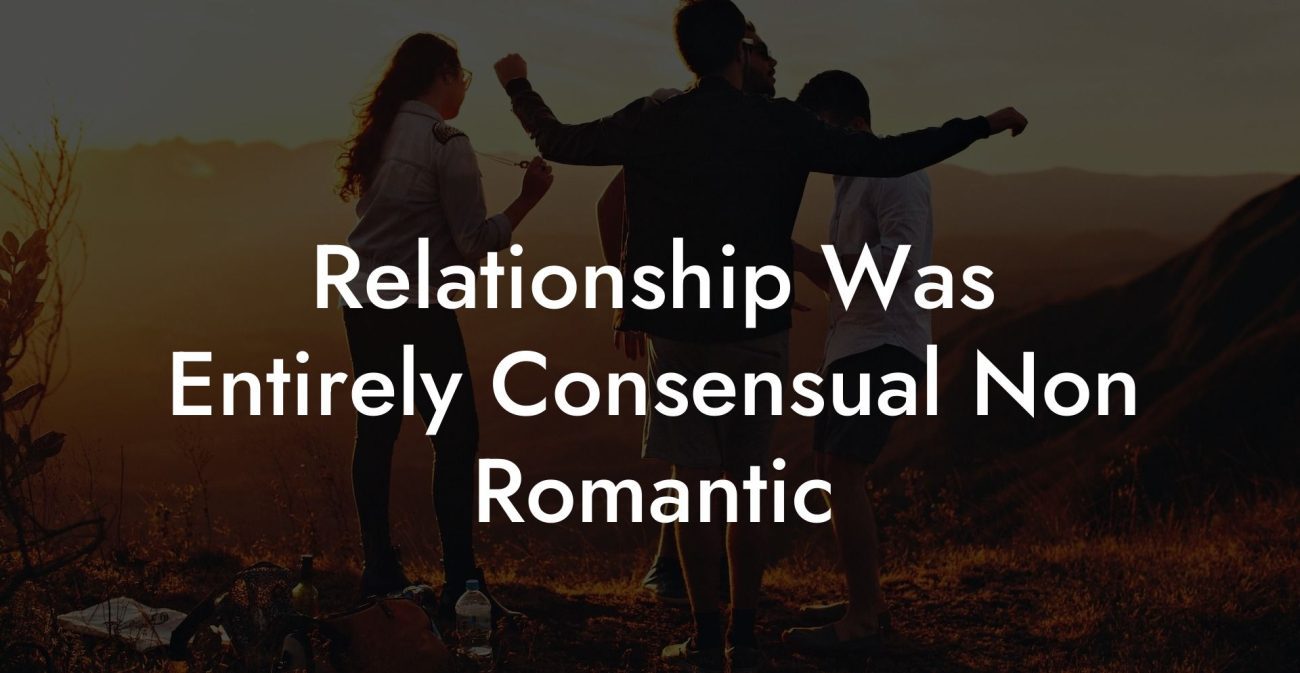Have you ever considered non-monogamous relationships? Perhaps you've been curious about the different types of non-monogamy, or maybe you're already practicing it and want to learn more. In this comprehensive guide, we'll delve into the world of non-monogamous relationships, discussing the types, benefits and challenges, and how you can make it work for you and your partners. Prepare to have your mind expanded as we dive into the realm of non-monogamy on The Monogamy Experiment!
Non Monogamy Relationships Table of Contents
What is Non-Monogamy?
Non-monogamy is the practice of being in more than one intimate relationship at a time, with the knowledge and consent of all parties involved. It is an umbrella term that includes several types of relationship styles, each with its unique characteristics.
Types of Non-Monogamous Relationships
- Polyamory: In polyamorous relationships, individuals can be in multiple romantic relationships simultaneously. There is an emphasis on emotional connections and open communication, with each relationship being unique.
- Swinging: This is a form of non-monogamy where couples engage in sexual activities with others, either together or separately. Swinging is often structured around specific events or clubs, and the primary focus is on sexual exploration.
- Open Relationships: In open relationships, partners agree they can have sexual experiences with others but maintain an emotional commitment to one another.
- Relationship Anarchy: This approach to non-monogamy is based on the idea that all relationships should be free of hierarchy and that each person can define and negotiate their relationships in a way that works for them.
Benefits of Non-Monogamy
- Emotional Fulfillment: Having multiple partners can provide individuals with various emotional connections, ensuring that they have a diverse support system in place.
- Sexual Exploration: Non-monogamy allows partners to explore their sexuality and desires with different people, leading to a more fulfilling sex life.
- Personal Growth: Engaging in non-monogamous relationships can push individuals to work on communication, negotiation, and self-awareness skills.
- Reduced Pressure: As multiple partners share romantic and sexual needs, there is often reduced pressure on each partner to fulfill every role in their partner's life.
Challenges of Non-Monogamy
- Time and Energy Management: Balancing multiple relationships can be demanding, especially when trying to maintain a quality connection with each partner.
- Jealousy: Navigating feelings of jealousy and insecurity can be difficult, particularly for those new to non-monogamous relationships.
- Communication: Open and honest communication is crucial in establishing and maintaining non-monogamous relationships, and not everyone may be skilled in this area.
- Social Stigma: Non-monogamous relationships can still be stigmatized in society, and individuals may face judgment from friends, family, or the public.
Non Monogamy Relationships Example:
Mike and Susan have been in a monogamous relationship for five years. They decide to explore non-monogamy together and start attending swinger clubs as a couple. Through these experiences, they communicate openly about their desires, boundaries, and emotional needs. As they gain more understanding of their preferences, Mike and Susan decide to transition to an open relationship. They agree on rules for sharing information about their new partners and prioritize spending quality time together. While both face occasional jealousy, they work through their emotions by maintaining open communication. Non-monogamy has allowed them to build a stronger bond as a couple while exploring their desires with others.
So, there you have it – the essentials of non-monogamous relationships! Whether you're curious about this relationship style or already in it, we hope this guide has provided useful insights and sparked your interest. Remember, the key to successful non-monogamous relationships is open communication, setting boundaries, and maintaining strong emotional connections. If you enjoyed this post, please share it with others and explore more on The Monogamy Experiment for further exciting guides!













